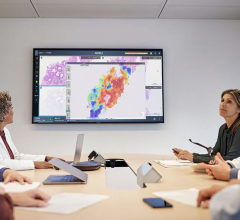
October 18, 2012 — Dicom Systems recently introduced its new product, DICOM Guard. The product is part of the company's DICOM and HL7 Interface Engine Suite. It uses the company's proprietary data tagging technology, which allows healthcare enterprises to have full control over security of their patient data.
The HIPPA privacy rule recognizes the need for healthcare organizations to share patient data and allows for the release of de-identified data for certain purposes. In order to protect the privacy interests of consumers, personal identifiers, such as name and social security number, are removed from databases containing sensitive information. De-identified patient data is the most valuable tool for the improvement of care, and researchers have been using it to develop modern medicine and healthcare practices for decades.
But even thought the data is de-identified, organizations still need to have some safeguards to place around it, especially if the images and patient data are stored off-site. The DICOM tagging technology from Dicom Systems de-identifies the data by removing all real patient identifiers, so that only the owners of the original data and/or legally empowered entities can re-identify the patient. In the event that patient data becomes publicly available, there is no risk that the individual will be identified.
When a medical facility retrieves the data from Dicom Systems' vendor-neutral archive, the DCMSYS router quickly re-identifies the data, using DICOM Supplement 142 and Dicom Systems' patent-pending tagging technology. No real patient data is stored on any of the devices – the de-identification and re-identification happen on the fly, using a secure key unique to each client to encrypt and decrypt the data.
The product is currently in beta testing and will be released for general availability later this year.
For more information: www.dcmsys.com


 July 26, 2024
July 26, 2024 








